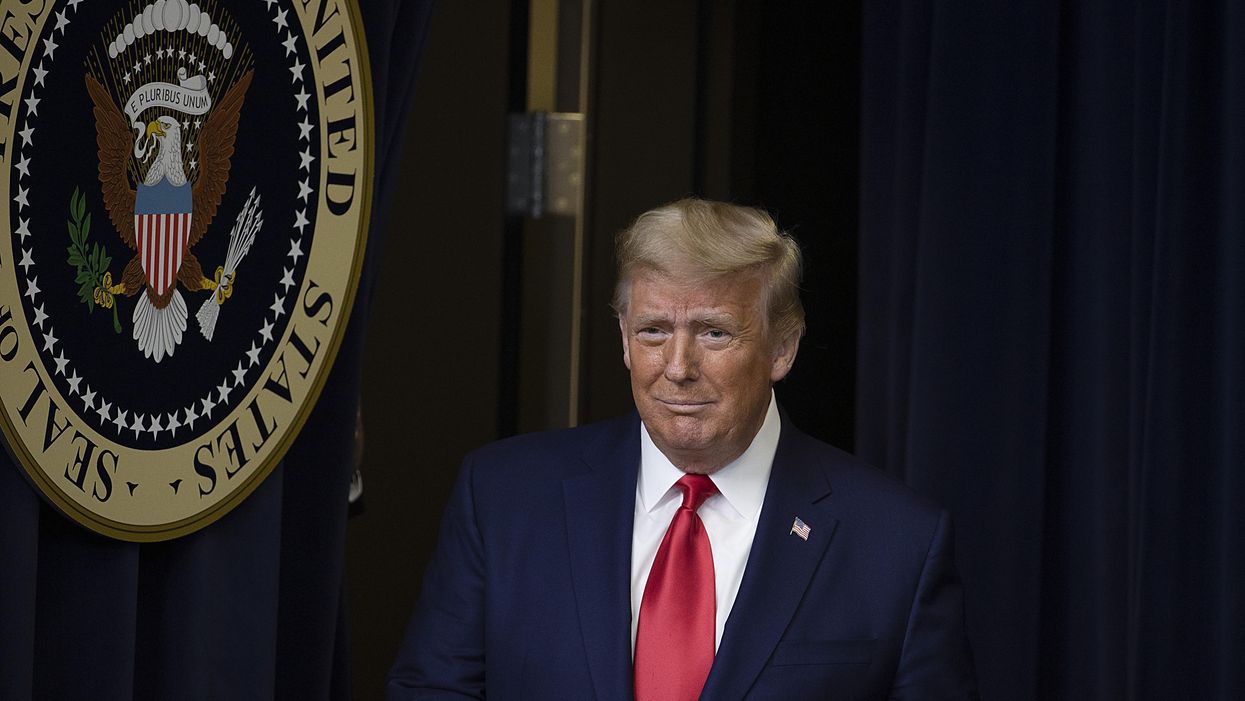Two extreme long-shot lawsuits are still sitting at the Supreme Court, a day after it waited just minutes before dismissing the first challenge to the presidential election it looked at.
There was not a word of dissent, from President Trump's three nominees or any of the other justices, as the court declined Tuesday evening to consider a bid by Pennsylvania Republicans to overturn Joe Biden's clear victory in the state.
Hours later came the deadline set by federal law for states to lock down their election results, and their assignments to the Electoral College, and make them almost totally immune from further challenges. While that essentially locked in Biden's election as the 46th president, it did nothing to stop Trump from continuing to falsely claim he won another term — or to prevent almost all his fellow Republicans in authority from appeasing the unprecedented effort by a president to delegitimize democracy with baseless conspiracy theories about voting fraud.
All but one state appears to have entered the so-called safe harbor on time, which means Congress must accept the electoral votes cast next week when they arrive for tabulating at a rare joint meeting of the House and Senate, to be held Jan 6.
The exception is Wisconsin, which has seen as much election turmoil as any since the pandemic upended voting and spurred a wave of litigation starting this spring. The state has been delayed because lawsuits by Trump allies, in several ways similar to the one from Pennsylvania that got spurned Tuesday, are on appeal to the Supreme Court and in the state courts.
The other suit before the justices, filed only Tuesday, is a claim by Republican Attorney General Ken Paxton of Texas that the state's citizens' political rights were unconstitutionally limited when rules for mail-in voting were relaxed in Wisconsin, Pennsylvania and two other battlegrounds Biden carried, Georgia and Michigan. All of them have Republican-majority legislatures. They account for 62 of the 306 electoral votes Biden can legitimately claim, but Texas says all those votes should be disallowed.
The high court has the power, but is not required, to decide lawsuits one state brings against another.
Attorneys general from the defendant states dismissed the Texas case with an array of colorful language.
But Trump on Wednesday said he would put lawyers to work arguing the Texas side of the case, declaring on Twitter: "We will be INTERVENING in the Texas (plus many other states) case. This is the big one. Our Country needs a victory!"
He offered no other details, such as whether he would ask his campaign attorneys or the Justice Department to get involved.
A Wisconsin appeals court will hear arguments Thursday on a long-odds suit alleging the state Elections Board permitted the finalizing of election results despite claims of irregularities in Milwaukee and Madison — and that as a result the statewide result should be tossed and the GOP Legislature should get to pick the electors.
Missing the safe harbor deadline does not nullify Wisconsin's 10 electoral votes, but it will make them slightly more vulnerable in Congress, where GOP Rep. Mo Brooks of Alabama says he will mount a challenge he has not detailed. Still, it's essentially inconceivable the Democratic-majority House would vote to throw out any slate of Biden electors.
Pennsylvania's 20 electoral votes, which Biden carried by 80,000 votes, were locked down Tuesday by a single, 18-word sentence ending with the word "denied."
The appeal, by Republicans led by Rep. Mike Kelly, argued that a state law enacted last year (with just one GOP "no" vote) allowing all Pennsylavnians to vote by mail without an excuse violated the state Constitution — and so all 2.5 million mailed ballots, mainly cast by Democrats, should be thrown out. Gov. Tom Wolf, a Democrat, argued in his brief to the justices that their getting involved in such a purely state matter would be "one of the most dramatic, disruptive invocations of judicial power in the history of the republic."
Meanwhile, almost all GOP members of Congress are declining to commit themselves publicly to the correct answer to the question: Has Biden won the election? Some say they may do so after the electors meet across the country Monday, while others say they will wait until Congress counts their votes in four weeks.
Meantime, their refusal to agree on the facts is furthering the undermining of voter confidence and putting a cloud over the peaceful transfer of power and the onset of the Biden administration.




















Trump & Hegseth gave Mark Kelly a huge 2028 gift